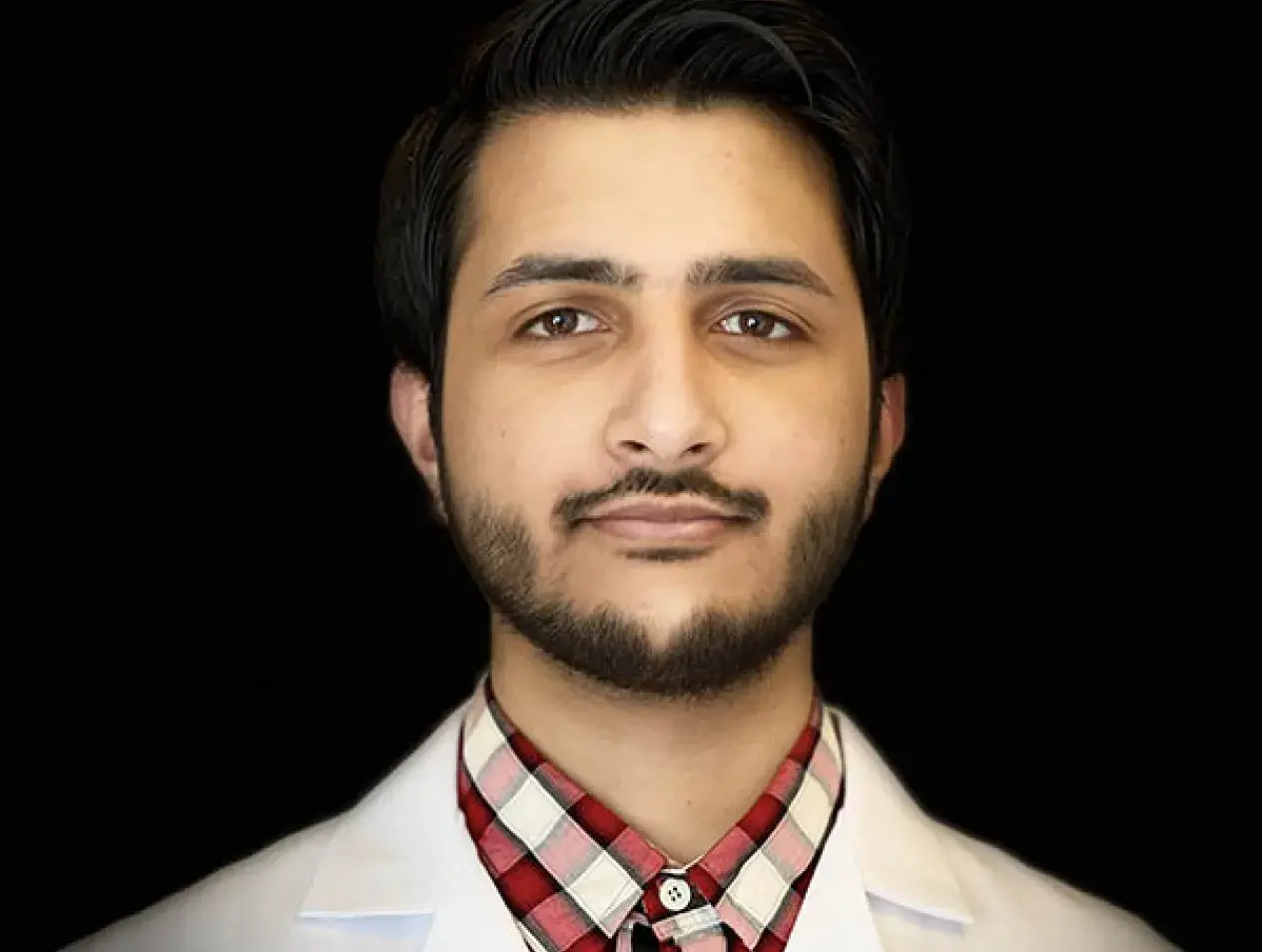
Abdullah Shah
Abdullah Shah has been researching factors determining whether a tooth is salvageable in cases where patients have lost bone around their teeth.
Pulling or saving molars subject of Creighton dental student research
Fourth-year Creighton School of Dentistry student Abdullah Shah, together with classmates Alexis Rollins and Kyle Mueller, is researching the varying sizes and other differences of molar teeth in men and women on the right and left sides of the mouth. The research findings, he says, are useful in determining whether a tooth is salvageable or not in cases where patients have lost bone around their teeth.
We put some questions to him:
Where are you from?
Rio Rancho, New Mexico.
What is your major and graduation year?
I am a fourth-year dental student on track to graduate in May 2023.
What kind of research are you doing?
We're doing periodontal clinical research under the guidance of faculty, including Najmeh Sadat Ganji, DMD, Laura Brown, DDS, Niranzena Panneer, MDS, Sonia Maria Rocha-Sanchez, PhD, Michael Weston, PhD, and Hasan Lari, DDS.
Why is research important to you?
Research is important to us as it allows us to improve as a whole. We cannot advance as a society without taking steps to find out what goes wrong or right. This is true in dentistry as well. We're always looking for ways to improve patient care, treatment and delivery of information.
What are your plans after graduating?
I plan to return to my home state of New Mexico to practice general dentistry as a Doctor of Dental Surgery (DDS). I do not have plans to specialize at this time, but I may in the future.
How will your research experience help you reach your goals?
Through this research experience, I've been given an opportunity to work as a team and learn from both my teachers and my peers. The results of our data should prove beneficial for patients seeking care at Creighton’s dental school, specifically patients with bone loss who need "deep cleanings."
Would you recommend research to incoming students?
Yes, it is very beneficial to expand your scope of study and to dive deeper into your learning materials beyond what you learn in lecture. Getting to be hands-on and actually immerse yourself into what you're learning is an excellent way to receive "real-world" skills and experiences. You'll also be able to participate in events and activities that your peers may be unaware of, giving you more opportunities in a competitive workforce.



